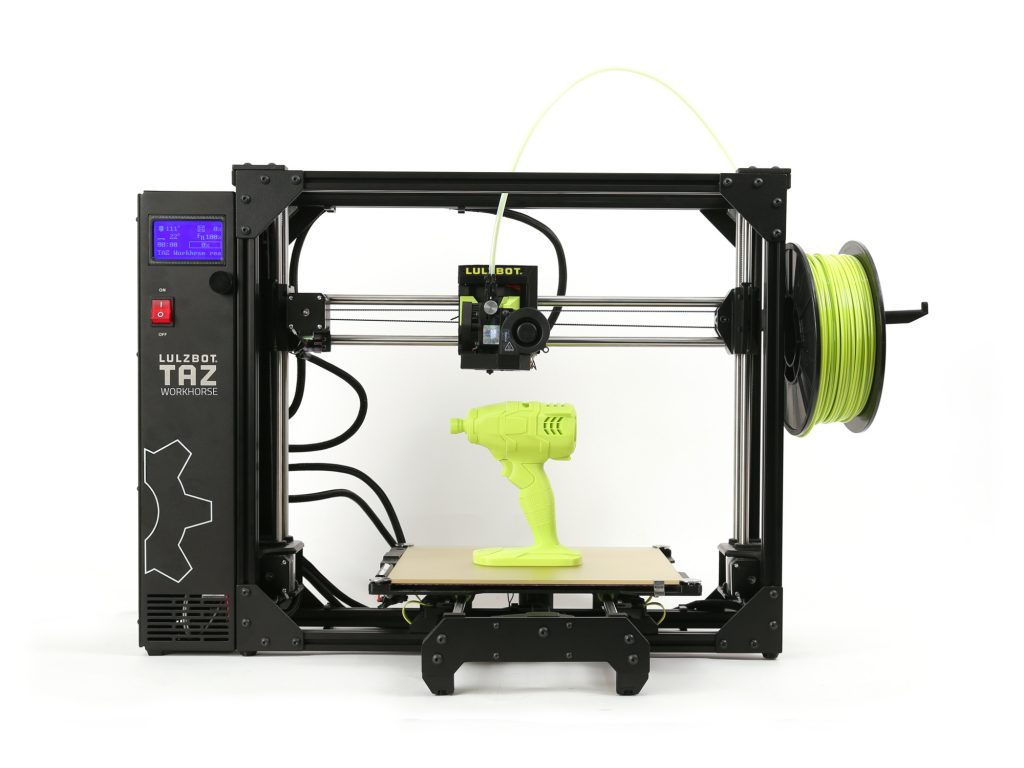Aleph Objects, the manufacturer of LulzBot open-source 3D printers, has confirmed its entry into the 3D bioprinting market. In partnership with Massachusetts based 3D bioprinting technology developer FluidForm, Aleph plans to launch LulzBot Bio hardware later this year.
For Grant Flaharty, Aleph Objects CEO and President, this undertaking presents a chance for LulzBot to be part of new a market that is expected to grow to $1.9 billion over the next 9 years. According to Flaharty, “Combining proven expertise in professional 3D printers and hardware with 3D biofabrication technology is going to be an absolute game-changer.”
FluidForm CTO Adam Feinberg, adds:
“We’re still at the very beginning of being able to build real functional tissues with 3D bioprinting. Collaborations like the one we are building with LulzBot will help make this a reality faster.”
From 3D printers to bioprinters
Aleph Objects has been making Lulzbot 3D printers since 2011. The most recent addition to its ever-growing product line are the Lulzbot TAZ 6: Workhorse Edition and LulzBot TAZ Pro systems. Though 3D bioprinting is a more niche subset of 3D printing, the hardware used in the process is very similar to most common desktop 3D printers. The main differences are the materials used, extrusion tool, and the typical working environment.

Many 3D bioprinters currently on the market as operate using the same cartesian system as LulzBot’s 3D printers. In place of a hot end, however, the LulzBot Bio will hold a needle, capable of depositing semi-liquid inks, and other gel-like substances. As the 3D bioprinter will also, at some point, come into contact with materials containing living cells, it’s basic 3D printer setup will also have to be made viable for a cleanroom environment. This could mean building an enclosure for the 3D printer.
One certain detail of the LulzBot Bio is that it will apply the proprietary Freeform Reversible Embedding of Suspended Hydrogels (FRESH) technology developed by FluidForm.
Manufacturing on Demand
FRESH 3D bioprinting
FluidForm is a startup company founded in 2018 as a spinout from Carnegie Mellon University’s Regenerative Biomaterials and Therapeutics Group. Its proprietary FRESH technology makes use of non-newtonian gels as a support material for 3D bioprinted matter.
The unique properties of non-newtonian gels allow things, i.e. a needle printhead, to move through them as though they were liquid. At the same time, the gels support deposited material like a solid. In FRESH a small vat of non-newtonian gel, FuildForm’s LifeSupport material, is used in place of a print bed. A needle deposition system is then worked through the gel to 3D print the desired shape, e.g. blood vessels. After this process, the material is cured – then the supporting gel can be melted to leave a 3D printed object.
Through the use of a sacrificial support gel, the method has some similarities with MIT’s Rapid Liquid Printing technique and microfludic chip fabrication conducted by the Lewis Lab at Harvard University.
The first product of Aleph and FluidForm’s collaboration is expected for release Summer 2019.
* This article is reprinted from 3D Printing Industry. If you are involved in infringement, please contact us to delete it.
Author: Beau Jackson

Leave A Comment